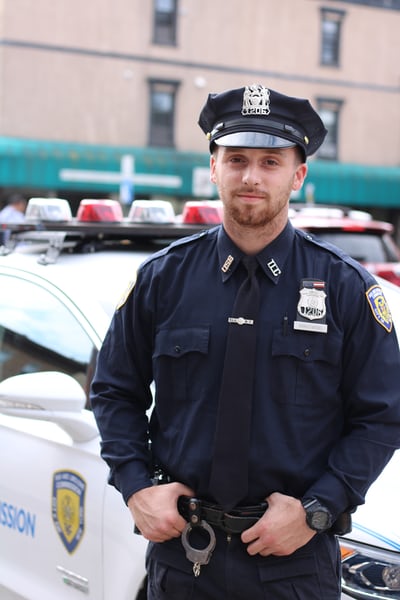I was a five-minute walk from home when a police car abruptly stopped beside me. Then the police officers rolled down the window and yelled, “stop!” But I stopped walking before they demanded me to. I was afraid—I was too afraid to move.
Police cars weren’t uncommon in my neighbourhood. I was twenty years old at the time, and I lived in a housing project with my mom and my siblings. And some of our neighbours were drug dealers who attracted other criminals and police officers to the neighbourhood.
Therefore, although police officers weren’t uncommon in my neighbourhood—although police officers had arrested several black boys from my neighbourhood—that was the first time I became a suspect to police officers.
After the police officers yelled at me to stop moving, they got out of their car and moved towards me. And in front of onlooking strangers and neighbours, they were about to arrest me— another big, black, boy. The police officers told me I looked like a criminal.
Ten years before that, shortly after I reunited with my mom when I immigrated to Canada from Ghana, she warned me to leave my violent temper behind in Ghana. She said because I’m black, if I get into a fight with another person, police officers in Canada will arrest me like a criminal and take me to prison.
That was my first impression of police officers in Canada. So on my first day of school, a white boy became angry with me for asking his white girlfriend for directions. He choked me. He punched and kicked me. And he threw me to the ground.
I didn’t defend myself. I didn’t want police officers to arrest me and take me to prison.
Still, the white boy beat me up so badly, my mom was forced to take me to the hospital. But in my mind, the hospital was better than prison.
My second impression—and my first encounter—with police officers, however, was dramatically different than the first impression.
A few weeks after my first day of school in Canada, I accidently got off my school bus at the wrong stop. I wandered around the city for hours. I was ten years old. I was new to the city. I was new to the country. I was lost. And I was afraid. I was afraid to ask strangers for help.
So, I kept wandering around—until I saw a police car. I was still afraid of police officers. But I was more afraid of being lost. So, I screamed and waved at the police car. And the police car stopped abruptly beside me. I started crying when I told them I was lost. They hugged me and promised me they would take me home. They placed me in the back of the police car. Then they tracked down my home address, and they took me home that evening.
Two years later, when I was twelve years old, I was at the back of a police car again. This time, the police officers weren’t taking me home—they were taking me, my little siblings, and mom away from home.
The police officers arrested my stepfather for domestic violence against my mom. And they escorted us into a women’s shelter for victims of domestic violence.
That was my last significant encounter with police officers until I was nearly arrested by police officers in my neighbourhood. I mentioned earlier the police officers told me I looked like a criminal. But that isn’t the complete sentence. They said I looked like a criminal they were looking for in my neighbourhood.
The police officers were in the middle of questioning me when they received a call from the police radio saying other police officers had found the criminal they were searching for. The police officers didn’t unjustly stop me. They stopped me because I apparently matched the physical description of a real criminal.
I can’t blame the police officers for that. I blame the criminal who looks like me for putting me in a bad position.
The police officers were just doing their job. They were just trying to serve and protect my neighbourhood—just as they served and protected me years before.
So dear police officers, I know some of your murderous colleagues like Derek Chauvin have made it harder for you to serve and protect your communities. I know some protestors and politicians do not appreciate everything you do to serve and protect us.
But I want you to know I’m grateful for you. I’m grateful you protected my mom when I was too young to protect her. I’m grateful you returned me home safely when I was lost.
The whole world appears to be scrutinizing your every move. Some of us are judging you fairly. And some of us are judging you unfairly. But if you’re reading this, I hope you’ll submit and entrust yourselves to God. He is the only person who judges justly.

